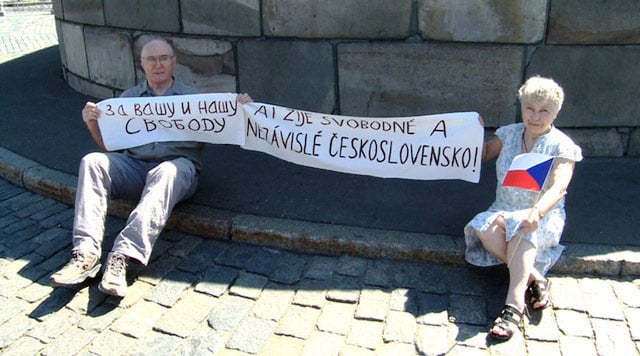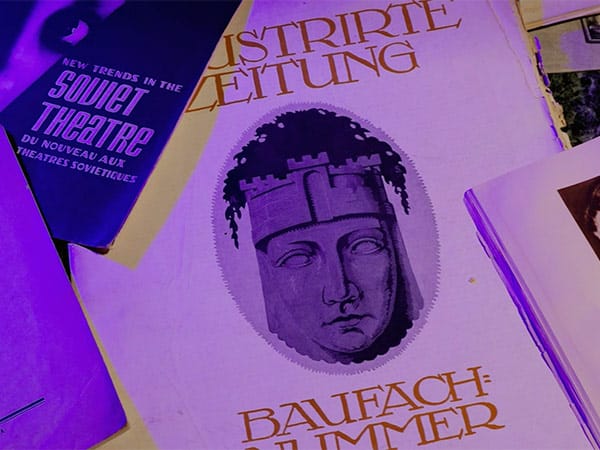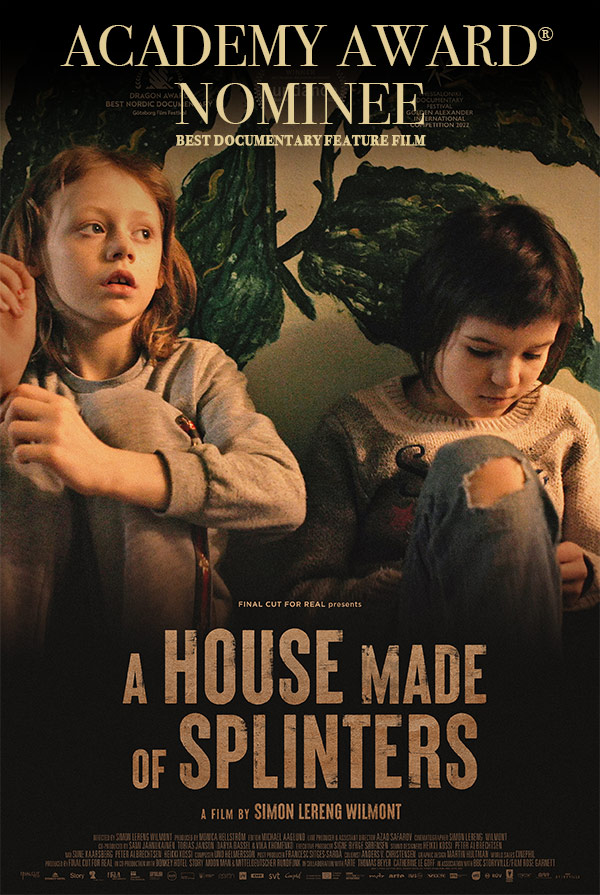This line, from a poem by Marina Tsvetaeva, written in 1918, a bloody year for Russia, is oddly reminiscent of 2022, and the events that continued on into 2023. “How long?” wrote teenage Ukrainian refugees in chalk on the sidewalk in the film “Away”. “A song from gunpowder does not a singer make” – and we agree with the poet, for the muse must keep silent during the gunfire. Cicero was doubly right when he said Inter arma enim silent lēgēs – Law is silent when guns are firing. War extinguishes both law and culture, and with them – life itself.
In 2021, when we announced the opening of the 14th annual festival of independent cinema in New York, we wrote this: “Re-imagination” – «The 20th year of the 21st century has seen enough momentous events and changes for an entire era. While our world has changed dramatically, those essential cultural values that need to be preserved have remained, and a new, fresh look at common civilizational issues has emerged, which must also be given attention…»
Back then we see that we were threatened by authoritarian systems, increasing nationalistic movements, a new arms race, the growth of corruption, et cetera, – coming at us from all corners of the world. It seemed that the only way to stand up and resist all kinds of barbarities was to unite under a flag of universal cultural values and freedoms.
 For 14 years we have worked together with documentary filmmakers from Europe and the USA, we have shown over 500 films, and we can surely say that we have done a lot to provide a space where the problems of the post-Soviet East European countries could be analyzed and reflected upon.
For 14 years we have worked together with documentary filmmakers from Europe and the USA, we have shown over 500 films, and we can surely say that we have done a lot to provide a space where the problems of the post-Soviet East European countries could be analyzed and reflected upon.
Considering the events of 2022, we felt that it would have been inappropriate to hold our independent festival of East European cinema in 2022. Shock froze up all creative endeavors that year. Festivals came to a halt. The muses fell silent. What happened as a result? War became routine, part of a lifestyle and business as usual; the endless stream of refugees coming in.
So why is 2023 any different than the previous year? Because we’ve had time to realize that this is no time to keep quiet. The muses mustn’t be silent when guns speak – they must stop their roar once and for all. This war must end with its own Nuremberg, the last one in the history of our civilization. The Final Nuremberg. This defines the goals of today’s documentary cinema.
In 2016, during the 9th festival, we showed a film by Stuart Schuberg, an American documentary filmmaker, who, in 1945, worked on the team that collected documentary materials for the Nuremberg trials. The film was called “Nuremberg: Its Lesson for Today”. Mr. Schuberg’s daughter Sandra restored the film stock and gave it to us to be screened – as a film producer, she understood the importance of her father’s work today. Looking back at the last 15 years of our festival we see the importance of the films we have shown. And we see that we cannot stop screening today’s documentaries because the process of learning from film texts is not yet over.
This is why we have decided to reformat the program of the 15th Independent Film Festival. The first part of our program will screen past years’ winners – social documentaries that today carry a different meaning, a meaning vital for our new reality. These films are lessons – that we suggest our audience studies carefully. For our and our children’s future.
The second part of the festival’s program will screen films made in 2022-2023. Films about the Russian opposition, the Ukrainian refugees, about the modern multiethnic diaspora – the full range of colors, opinions, and contexts. This year, for the first time, we do not list the country that produced the films we screen – all of our directors are currently in refugee status, and during 2022 they’ve moved around Europe, Asia, and the USA – many of them are still unsure what country or government are they themselves subjects of. They are citizens of the world. People of the world. In the end, isn’t that the fate of a truly independent documentary film?
The main part of our program will be screened on our online platform – access to it will be available to those watching from the USA and Canada (for more information please visit www.rusdocfilmfest.org)
 The 15th festival will open at the Anthology Film Archives on March 19th, at 3 pm. We will show two premieres – the film “Famine”, about the 1920s hunger in the Volga region and the work American charities did during that time (film by Tatyana Sorokina, Alexander Archangelsky, and Maxim Kurnikov). The film was denied a screening license in Russia and is prohibited to screen in the Russian Federation. If the subject is of interest to you, we recommend that you also see “Zulmat” on our online platform – this film, by Kazakh director Zh. Mamay is about hunger in Kazakhstan, premiered at our festival in 2020, has received The Humanitarian Award, and is also prohibited from screening in Russia.
The 15th festival will open at the Anthology Film Archives on March 19th, at 3 pm. We will show two premieres – the film “Famine”, about the 1920s hunger in the Volga region and the work American charities did during that time (film by Tatyana Sorokina, Alexander Archangelsky, and Maxim Kurnikov). The film was denied a screening license in Russia and is prohibited to screen in the Russian Federation. If the subject is of interest to you, we recommend that you also see “Zulmat” on our online platform – this film, by Kazakh director Zh. Mamay is about hunger in Kazakhstan, premiered at our festival in 2020, has received The Humanitarian Award, and is also prohibited from screening in Russia.
Our second premiere on March 19th will be “Away” – a film about teenage Ukrainian refugees in Hungary (directed by Ruslan Fedotow, who debuted at our previous festivals). During the screening, audience members will be able to donate funds to Ukrainian refugee children.
We hope to see you at the screenings – both in Manhattan and in our Online Theater.
Inter arma, silent musae, goes the saying. When guns speak, muses are silent. This year, we’d like to rewrite that saying. We have invited documentary filmmakers from all over the world, and we invite you, our audience, to join together and say once and for all:
When muses refuse to stay silent, the guns have no choice but to stop speaking.
O.C., 15th RUSDOCFILMFEST


